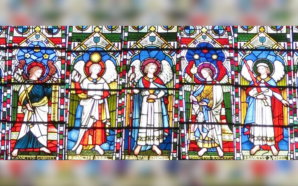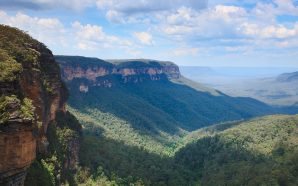It seems to me that the words so often heard during Advent are words around the coming of light. In the northern hemisphere that has particular import because they are, as we speak, being plunged more and more into climatic darkness as well as every other kind of darkness.
When I was in England recently, the sun was already starting to set around 3.30pm. In Australia, we have no such issue with the sun and we have light all the time.
That fact prompted me to make the following reflection. Maybe God did not come to give us light, but rather to show us the light we already have and especially the light within ourselves. We so often do not see it, being used to the blockages and shuttered windows with which we live, both inside and out.
So, in Advent we call out in the liturgy, “Give us Light”, “Bring us Your Light”, “Let the Light Come”. And perhaps God is saying: “You already have it, I already gave it to you, let me show you”.
As a means of reflecting on this, I have here below a poem by a beloved Japanese poet and author, Kenji Miyazawa (1896-1933), who only came into his own posthumously. He was born at the time the feudal system in Japan was making way for a more modern way of being and his own father Masajirō was in the forefront of it.
I won’t say any more about him here, you can research him for yourself. Suffice to say here that Kenjie was a man of great devotion to that in which he believed. He took the spiritual road seriously. A sensitive soul, he was plagued by illness as a child, he understood weakness and vulnerability. Grief came to him with the death of his much-loved sister Toshi and it was because of a promise he made to her that he began to unpack his talent for writing. Something he did not believe he had. In all his interior searching, he took the roads in life that presented themselves, lived them and stayed with them, in spite of the inherent price, the poverty, the hardship, the self-doubt and the loneliness.
I offer you this extract from a poem which he wrote about the kind of man he would like to be. I am not going to go through it, you will have your own reflections to make as you read, but I would like to point out just two aspects which might illustrate the ways in which such living can unblock the light in us, let it be seen by others and the ways in which we can find the light in one another.
Firstly, Kenjie says that this person seeks no compliments. What a wonderful burden is lifted from our hearts and minds on the day when we no longer expect that there will be a compliment, a thank you, a recognition/affirmation for what we do or who we are. On that day, we learn that we can live fully without those things, our light is within and totally unrelated to anyone else. Light seems to dawn upon us from within. We can stand in our own light and that light is in fact the pure light of God.
We also find that once we stop looking for those compliments etc., we become open to actually lavishing others with compliments, gratitude and affirmations. In so doing, we enable an unblocking of the light in them and from that point, we all go forward to further divine revelations and “the night is as clear as the day” (Psalm 139:12).
Secondly, Kenjie speaks of living in a hut with a thatched roof in the shade of the pine woods. There is the point of prayer, there is the point of nourishment, that time spent in connection with our God, in whatever way each one does that.
There is a picture I have of a cottage, filled with light and warmth. In prayer we are bathed and warmed in light. There are also two lights at the front gate, showing the way for others who will be drawn by the light that emanates from us. Actually, the longer one looks at this picture, the more light becomes obvious and the darkness begins to fade away. It is the lived reality of a home of prayer within us that becomes a sure guide to the places in each of our lives where God is wanting to show us the light we have and the shutters that are keeping it hidden.
If together this Advent, we can work on unblocking the light, then we can become the Star of Bethlehem for all the world, shining out from wherever we are, and the world right now has need of such stars.
Furthermore, if we look carefully at Kenjie’s poem, we may just see how gently God has come to us; the One, who watches, listens understands and never forgets. The one who seeks no compliments, is happy to be regarded as useless, the One continually drawing us to His hut with the thatched roof in the shade of the pine woods, that we might discover His hut and light within us.
He is not deterred by rain and severe winds
He is resilient to snow and summer heat
He is not greedy
Never an angry glare
Always peaceful with a smile
He has four cups of rice a day
With miso paste and vegetables
Anything he does is without thought of gain
He watches, listens, understands
And never forgets
He lives in a hut with a thatched roof
in the shade of the pine woods.
If there is a sick child in the east
He goes to tend to him.
When there is a tired mother in the west
He goes to her and helps her carry rice
Where there is a dying man in the south
He goes to ease his fear.
When there is a feud in the north
He travels there to tell them not to be petty.
He cries in a drought
And wanders hopelessly in the cool summer
He lets everyone call him useless
He seeks no compliments
He bothers no one.
Kenji Miyazawa (1896-1933)
Mother Hilda Scott OSB is the Abbess of the Benedictine Abbey in Jamberoo, in the Diocese of Wollongong. This reflection was originally published on the Abbey’s website in December 2023. Republished with permission.
This article was republished in the 2024 Advent & Christmas | Summer edition of the Catholic Outlook Magazine. You can read the digital version here or pick up a copy in your local parish.








